12 - 16 September 2022
The future of space is based on cooperation, commercial alliances and could mediate political relationships

China claim Changesite contains energy source Helium-3 (Image: NASA)
This week we’ve seen some impressive outcomes in the space sector, with Rocket Lab’s successful demonstration of the reusability of their electron rocket, Sierra Space carrying out further tests on their inflatable habitation module and SpaceX breaking yet more reusability records. Furthermore, China claim to have identified Helium-3 within the new lunar mineral they have discovered, named Changesite.
Despite the overwhelming challenges that are yet to be addressed in actually being able to utilise Helium-3 as an energy source, the possibilities could be world-changing. Head of the Chinese Lunar Exploration Program said that "each year, three space shuttle missions could bring enough fuel for all human beings across the world.” This may well be one reason for the acceleration of the new space race.
However, this week we have seen further evidence of consolidation within the space sector, whether to address security matters, or to assist productivity. An article from leading consultants McKinsey & Co earlier this year highlighted the necessity of collaboration, uniting behind shared goals. Indeed this appears to be happening, and helping us achieve great things. However, what forms of cooperation and consolidation will help the industry prosper, encourage young enterprise and protect space as the success for all humankind?
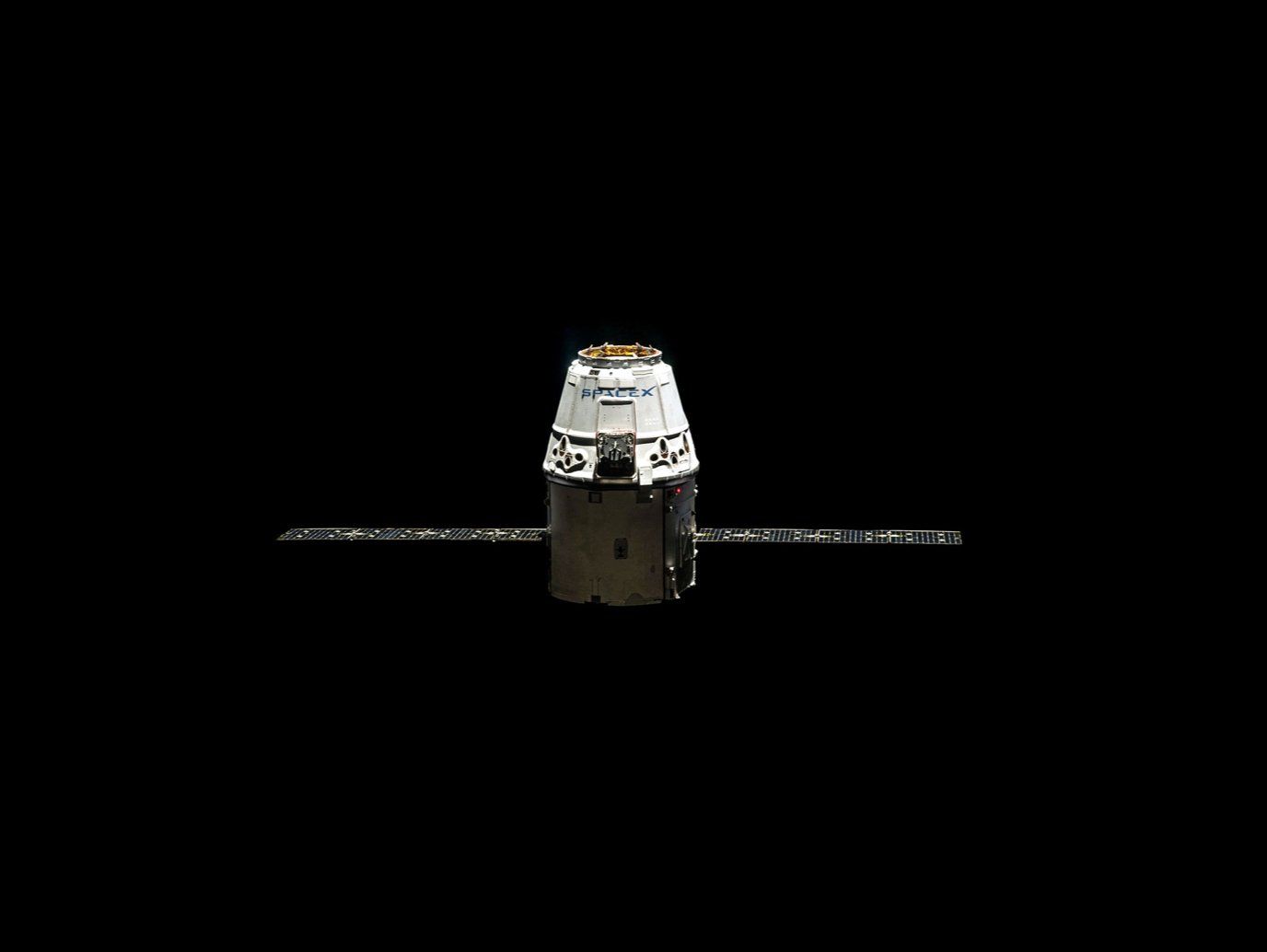
US leading the way in banning ASAT demonstrations (Image: SpaceX)
Space nations continue to form alliances
As discussed in our previous analysis, the landscape of the space sector is changing. New alliances are forming, and old ones being torn apart. New alliances, such as the Artemis Accords of China’s ILRS, are looking to take leadership and attract the attention of new and established space nations. The US continued its efforts this week to take leadership on ASAT testing this week, ploughing a way forwards with its attempts to ban the practice.
Germany and Japan have also signed-up to follow this commitment, following both Canada and New Zealand. The United States will now also look to introduce a resolution to the UN, calling for a halt on direct-ascent anti-satellite tests (ASAT), with Kamala Harris calling this a direct effort to draw more nations to join the moratorium. The efforts would also look to put pressure on nations that are planning ASAT testing, and gather a consensus among UN members. The US will also be holding a meeting of their Artemis Accords members at the International Astronautical Congress in Paris later this month, and could be another option in ensuring adopted norms in Earth orbit. However, UN-led approach may be more successful, considering that Russia and China are highly unlikely to sign-up to the Accords.
European launch capabilities have taken another step forwards, with Arianespace coming close to signing a deal with OneWeb to launch their remaining satellites. Similarly, German launch startup Rocket Factory Augsburg have signed a contract with the ESA for their Commercial Space Transportation Services and Support program, with the German Space Agency (DLR) also set as an anchor customer. Spanish startup Elche have also announced the launch of Europe's first reusable rocket later this year.
Europe has also taken steps towards its commitment to international cooperation, with the ESA’s Climate and Sustainability Officer Andrea Vena stating that they are looking forwards to cooperation with Türkiye. Vena also noted the importance of the commercial sector in creating competition, furthering research and investment, and also working with African nations and India. Cooperation between establish and new space nations will be vital, in order to encourage new talent, and forge strong relationships based on peaceful outcomes.
Similarly, China is continuing to build strong ties with African nations, as they look to assist in the development of their space industries. A contingent of Chinese taikonauts were recently touring through Africa, speaking to youths and answering their questions, no doubt inspiring the new generation of space enthusiasts. Head of the mission to the African Union said the space was part of China’s “Belt & Road Initiative”, assisting in developing infrastructure in developing nations. This could certainly be received by many as positive step for the space industry in Africa. Could China be ramping up their efforts to lure African nations away from western alliances such as the the ESA and the Artemis Accords? It appears that Kuwait will also be looking to work much closer with China in space, said Ahmed Al-Kandri, deputy and operations manager of Kuwait's national satellite project, in a recent interview.
China’s relationship with the west took another blow this week, with Imperial College London closing its joint Chinese-sponsored aerospace research centres, fearing it may advance China’s military ambitions. Whilst new alliance may be forming, the alliances themselves seem to be growing further apart.
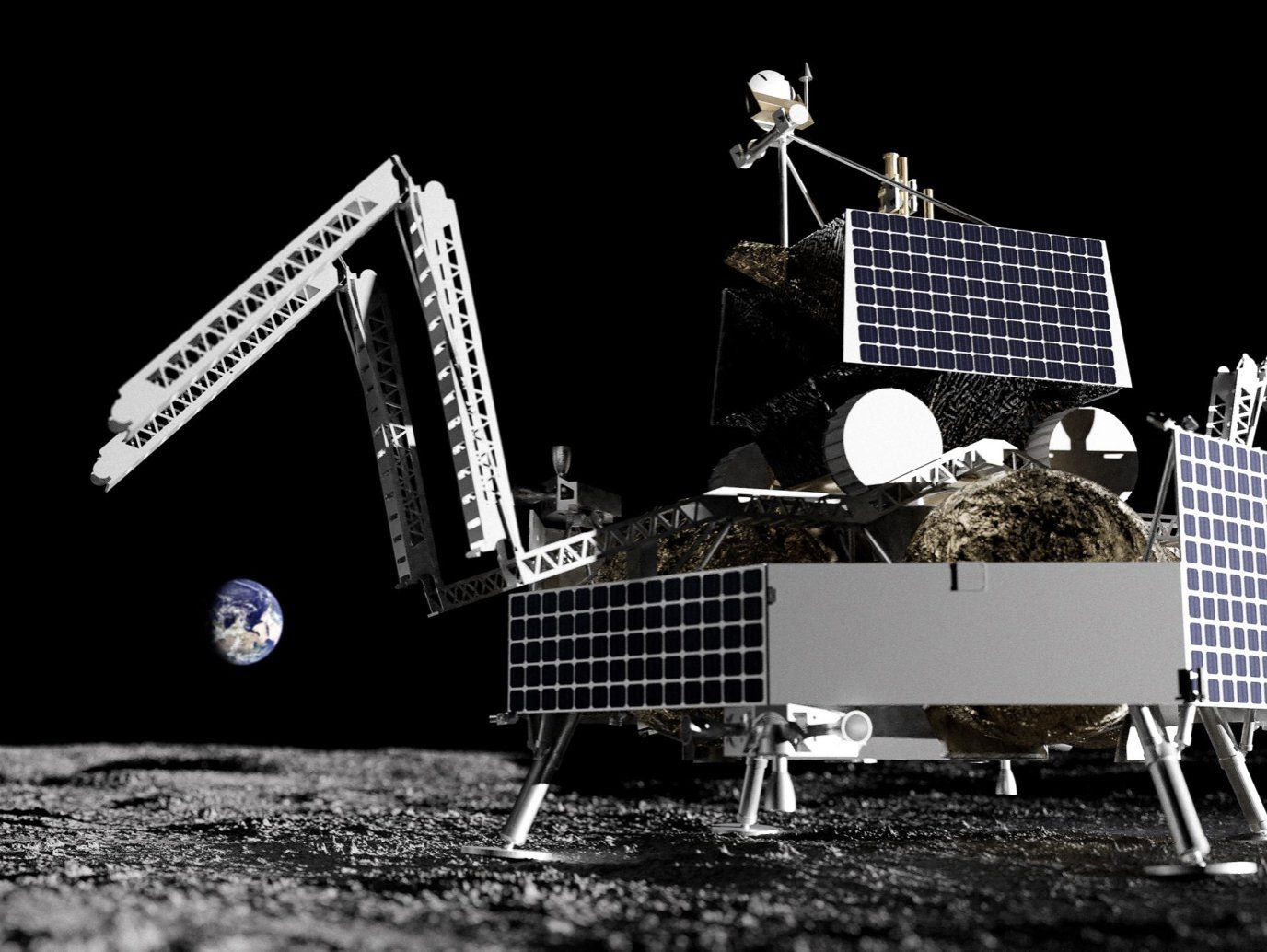
Astrobotic expand their portfolio with Masten purchase (Image: Astrobotic)
Commercial space race and growing factions
The commercial sector is also leveraging the success that is achieved through cooperation. Earlier this year, French satellite firm Eutelsat and British company OneWeb were an example how business can overcome geopolitical tensions, by putting Brexit differences aside and announcing a merger. The success of this partnership is showing already, as they have announced that they may consider a second generation constellation.
Astrobotic have also recently completed the purchase of Masten Space Systems, after the latter filed for bankruptcy earlier this year. The exact details of their plans are still unclear, but Astrobotic discussed the importance of Masten’s launch technology and that its suborbital work will continue. The consolidation of these technologies could mean that the combined organisation can offer a wider range of space services, rivalling comedies such as SpaceX and Blue origin.
Whilst such consolidation is good news for boosting capabilities (and especially good new for Masten), how will the formation of new mega-companies affect competition within the rest of the industry? Space News this week discussed this issue in regards to the consolidation of satellite companies, and wrote that “Future entrants would…likely struggle to offer the same capabilities as those that have joined forces.” Furthermore, how could the emergence of these corporations mean that the future of space is being driven into the hands of the few? There’s certainly two sides to the coin.
Perhaps there is another model of cooperation that could benefit more stakeholders. This week Microsoft announced plans to offer previews of its Azure Orbital Cloud Access, and highlighted its key to success being through partnerships; Airbus, Nokia and Thales Alenia to name a few. With their Azure network, Microsoft does not intend on launching their own satellites, but intends on working instead with partners to achieve its goals. Could this be a model for achieving both success and building a competitive space economy?
Similarly, agencies have launched a new Space Communications Alliance. Their aim is to connect private and public sector agencies through integrated public relations, content marketing and social media campaigns. The SCA will be launched at the 73rd International Astronautical Congress (IAC) in Paris from 18-22 September. This could also prove to be a way forwards, in order to connect businesses and promote cooperation, whilst not forcing them out of the market.
Another issue that such alliances could confront is that of geopolitics; not to be involved with it, but to provide an example of how businesses can overcome political differences, work together and build bridges. Politics will always shape international relations, and as it stands, relations are fast deteriorating between the major space powers. Maybe these alliances can show us another way forwards, for peace and success.
External Links
This Week
*News articles posted here are not property of ANASDA GmbH and belong to their respected owners. Postings here are external links only.
Our future in space
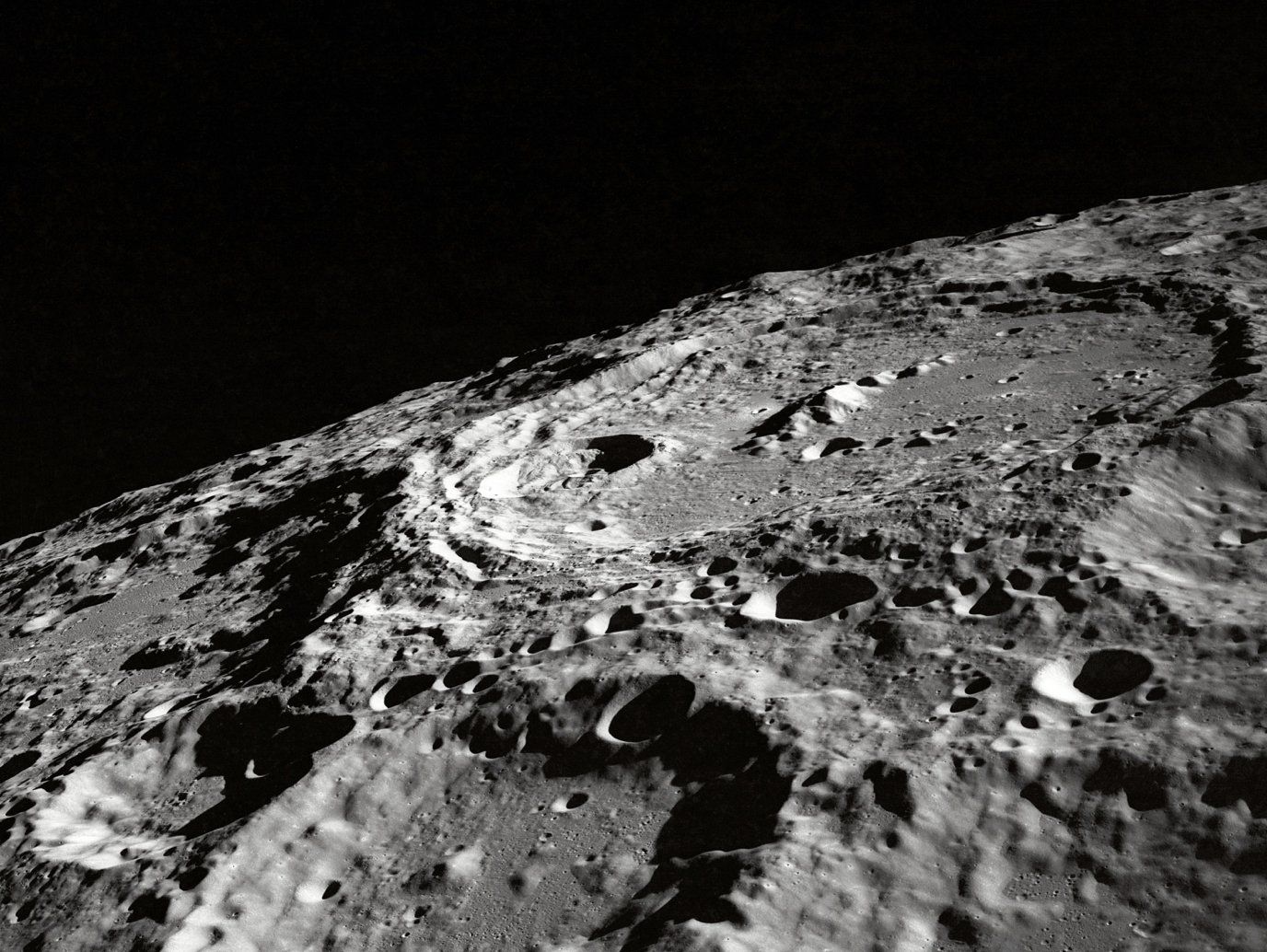
China claim Changesite contains energy source Helium-3 (Image: NASA)
12 - 16 September 2022
The future of space is based on cooperation, commercial alliances and could mediate political relationships
This week we’ve seen some impressive outcomes in the space sector, with Rocket Lab’s successful demonstration of the reusability of their electron rocket, Sierra Space carrying out further tests on their inflatable habitation module and SpaceX breaking yet more reusability records. Furthermore, China claim to have identified Helium-3 within the new lunar mineral they have discovered, named Changesite.
Despite the overwhelming challenges that are yet to be addressed in actually being able to utilise Helium-3 as an energy source, the possibilities could be world-changing. Head of the Chinese Lunar Exploration Program said that "each year, three space shuttle missions could bring enough fuel for all human beings across the world.” This may well be one reason for the acceleration of the new space race.
However, this week we have seen further evidence of consolidation within the space sector, whether to address security matters, or to assist productivity. An article from leading consultants McKinsey & Co earlier this year highlighted the necessity of collaboration, uniting behind shared goals. Indeed this appears to be happening, and helping us achieve great things. However, what forms of cooperation and consolidation will help the industry prosper, encourage young enterprise and protect space as the success for all humankind?
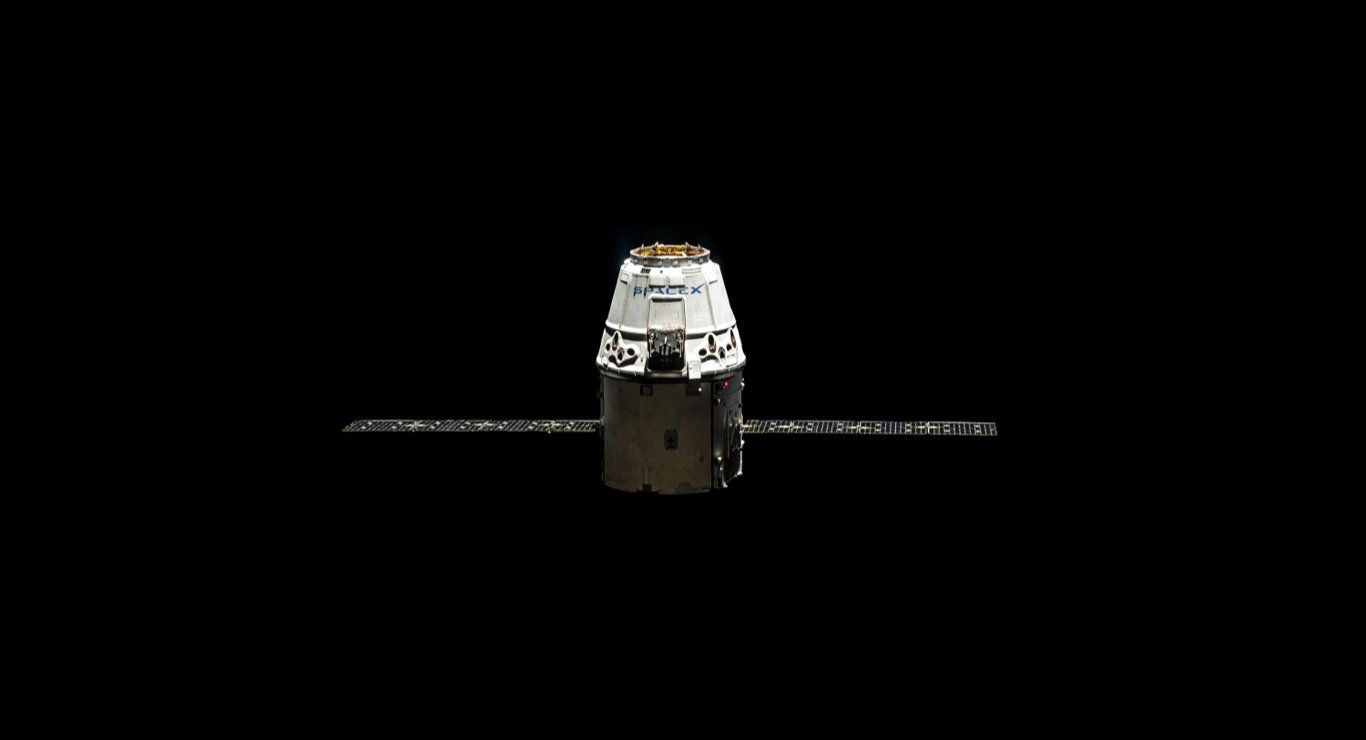
US leading the way in banning ASAT demonstrations (Image: SpaceX)
Space nations continue to form alliances
As discussed in our previous analysis, the landscape of the space sector is changing. New alliances are forming, and old ones being torn apart. New alliances, such as the Artemis Accords of China’s ILRS, are looking to take leadership and attract the attention of new and established space nations. The US continued its efforts this week to take leadership on ASAT testing this week, ploughing a way forwards with its attempts to ban the practice.
Germany and Japan have also signed-up to follow this commitment, following both Canada and New Zealand. The United States will now also look to introduce a resolution to the UN, calling for a halt on direct-ascent anti-satellite tests (ASAT), with Kamala Harris calling this a direct effort to draw more nations to join the moratorium. The efforts would also look to put pressure on nations that are planning ASAT testing, and gather a consensus among UN members. The US will also be holding a meeting of their Artemis Accords members at the International Astronautical Congress in Paris later this month, and could be another option in ensuring adopted norms in Earth orbit. However, UN-led approach may be more successful, considering that Russia and China are highly unlikely to sign-up to the Accords.
European launch capabilities have taken another step forwards, with Arianespace coming close to signing a deal with OneWeb to launch their remaining satellites. Similarly, German launch startup Rocket Factory Augsburg have signed a contract with the ESA for their Commercial Space Transportation Services and Support program, with the German Space Agency (DLR) also set as an anchor customer. Spanish startup Elche have also announced the launch of Europe's first reusable rocket later this year.
Europe has also taken steps towards its commitment to international cooperation, with the ESA’s Climate and Sustainability Officer Andrea Vena stating that they are looking forwards to cooperation with Türkiye. Vena also noted the importance of the commercial sector in creating competition, furthering research and investment, and also working with African nations and India. Cooperation between establish and new space nations will be vital, in order to encourage new talent, and forge strong relationships based on peaceful outcomes.
Similarly, China is continuing to build strong ties with African nations, as they look to assist in the development of their space industries. A contingent of Chinese taikonauts were recently touring through Africa, speaking to youths and answering their questions, no doubt inspiring the new generation of space enthusiasts. Head of the mission to the African Union said the space was part of China’s “Belt & Road Initiative”, assisting in developing infrastructure in developing nations. This could certainly be received by many as positive step for the space industry in Africa. Could China be ramping up their efforts to lure African nations away from western alliances such as the the ESA and the Artemis Accords? It appears that Kuwait will also be looking to work much closer with China in space, said Ahmed Al-Kandri, deputy and operations manager of Kuwait's national satellite project, in a recent interview.
China’s relationship with the west took another blow this week, with Imperial College London closing its joint Chinese-sponsored aerospace research centres, fearing it may advance China’s military ambitions. Whilst new alliance may be forming, the alliances themselves seem to be growing further apart.
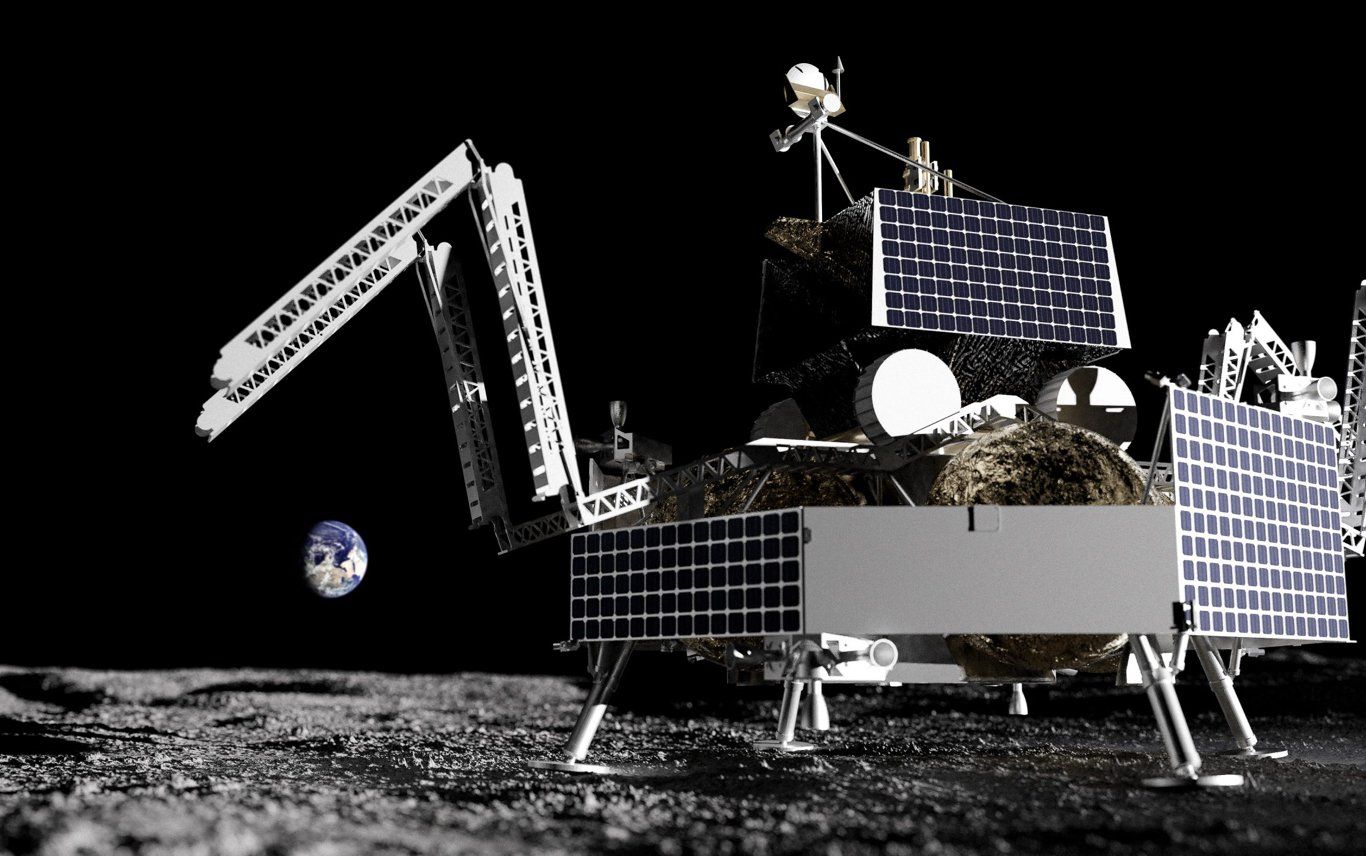
Astrobotic expand their portfolio with Masten purchase (Image: Astrobotic)
Commercial space race and growing factions
The commercial sector is also leveraging the success that is achieved through cooperation. Earlier this year, French satellite firm Eutelsat and British company OneWeb were an example how business can overcome geopolitical tensions, by putting Brexit differences aside and announcing a merger. The success of this partnership is showing already, as they have announced that they may consider a second generation constellation.
Astrobotic have also recently completed the purchase of Masten Space Systems, after the latter filed for bankruptcy earlier this year. The exact details of their plans are still unclear, but Astrobotic discussed the importance of Masten’s launch technology and that its suborbital work will continue. The consolidation of these technologies could mean that the combined organisation can offer a wider range of space services, rivalling comedies such as SpaceX and Blue origin.
Whilst such consolidation is good news for boosting capabilities (and especially good new for Masten), how will the formation of new mega-companies affect competition within the rest of the industry? Space News this week discussed this issue in regards to the consolidation of satellite companies, and wrote that “Future entrants would…likely struggle to offer the same capabilities as those that have joined forces.” Furthermore, how could the emergence of these corporations mean that the future of space is being driven into the hands of the few? There’s certainly two sides to the coin.
Perhaps there is another model of cooperation that could benefit more stakeholders. This week Microsoft announced plans to offer previews of its Azure Orbital Cloud Access, and highlighted its key to success being through partnerships; Airbus, Nokia and Thales Alenia to name a few. With their Azure network, Microsoft does not intend on launching their own satellites, but intends on working instead with partners to achieve its goals. Could this be a model for achieving both success and building a competitive space economy?
Similarly, agencies have launched a new Space Communications Alliance. Their aim is to connect private and public sector agencies through integrated public relations, content marketing and social media campaigns. The SCA will be launched at the 73rd International Astronautical Congress (IAC) in Paris from 18-22 September. This could also prove to be a way forwards, in order to connect businesses and promote cooperation, whilst not forcing them out of the market.
Another issue that such alliances could confront is that of geopolitics; not to be involved with it, but to provide an example of how businesses can overcome political differences, work together and build bridges. Politics will always shape international relations, and as it stands, relations are fast deteriorating between the major space powers. Maybe these alliances can show us another way forwards, for peace and success.
Share this article
External Links
This Week
*News articles posted here are not property of ANASDA GmbH and belong to their respected owners. Postings here are external links only.
12 - 16 Sept 2022
The future of space is based on cooperation, commercial alliances and could mediate political relationships
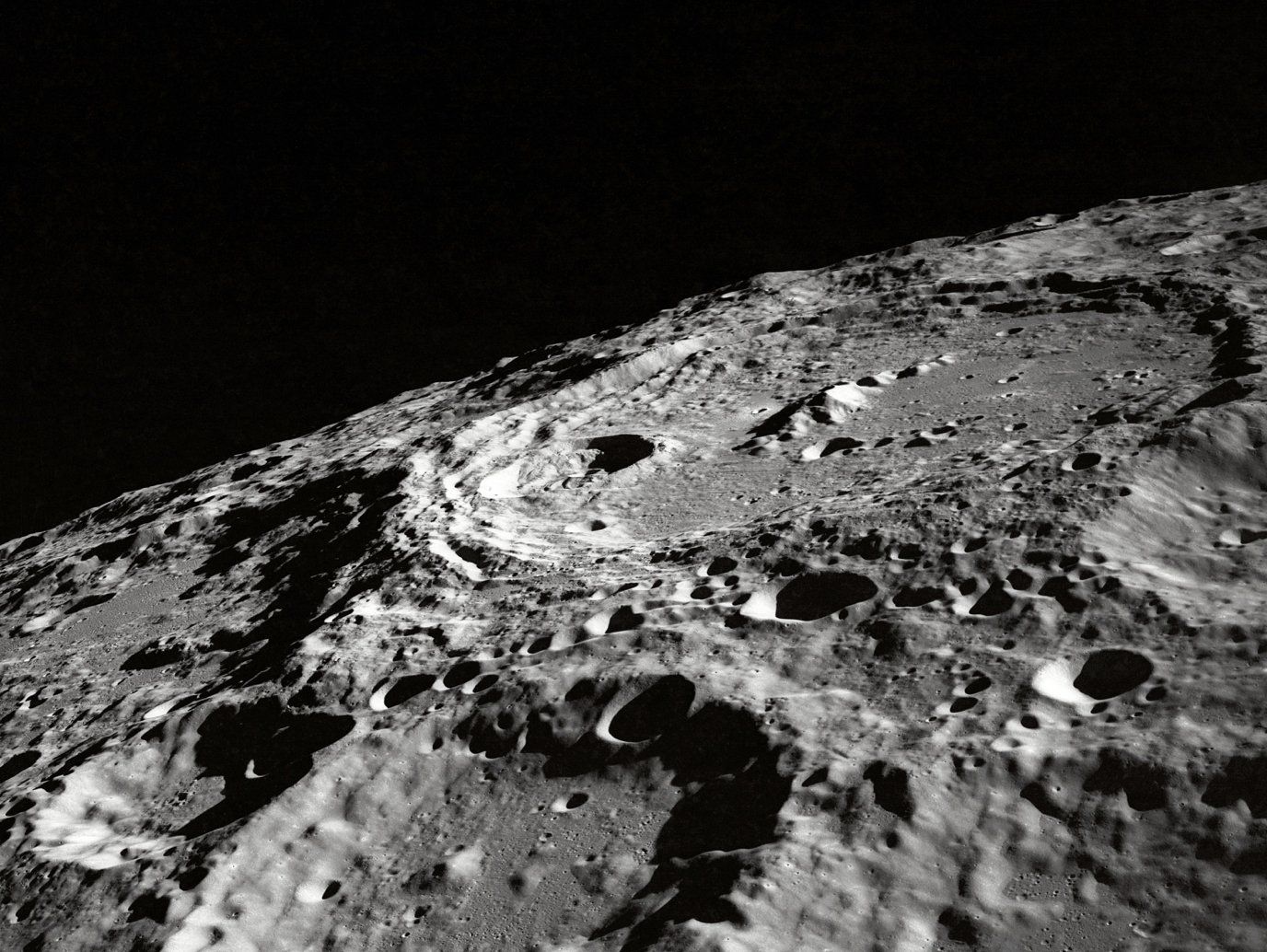
China claim Changesite contains energy source Helium-3 (Image: NASA)
This week we’ve seen some impressive outcomes in the space sector, with Rocket Lab’s successful demonstration of the reusability of their electron rocket, Sierra Space carrying out further tests on their inflatable habitation module and SpaceX breaking yet more reusability records. Furthermore, China claim to have identified Helium-3 within the new lunar mineral they have discovered, named Changesite.
Despite the overwhelming challenges that are yet to be addressed in actually being able to utilise Helium-3 as an energy source, the possibilities could be world-changing. Head of the Chinese Lunar Exploration Program said that "each year, three space shuttle missions could bring enough fuel for all human beings across the world.” This may well be one reason for the acceleration of the new space race.
However, this week we have seen further evidence of consolidation within the space sector, whether to address security matters, or to assist productivity. An article from leading consultants McKinsey & Co earlier this year highlighted the necessity of collaboration, uniting behind shared goals. Indeed this appears to be happening, and helping us achieve great things. However, what forms of cooperation and consolidation will help the industry prosper, encourage young enterprise and protect space as the success for all humankind?
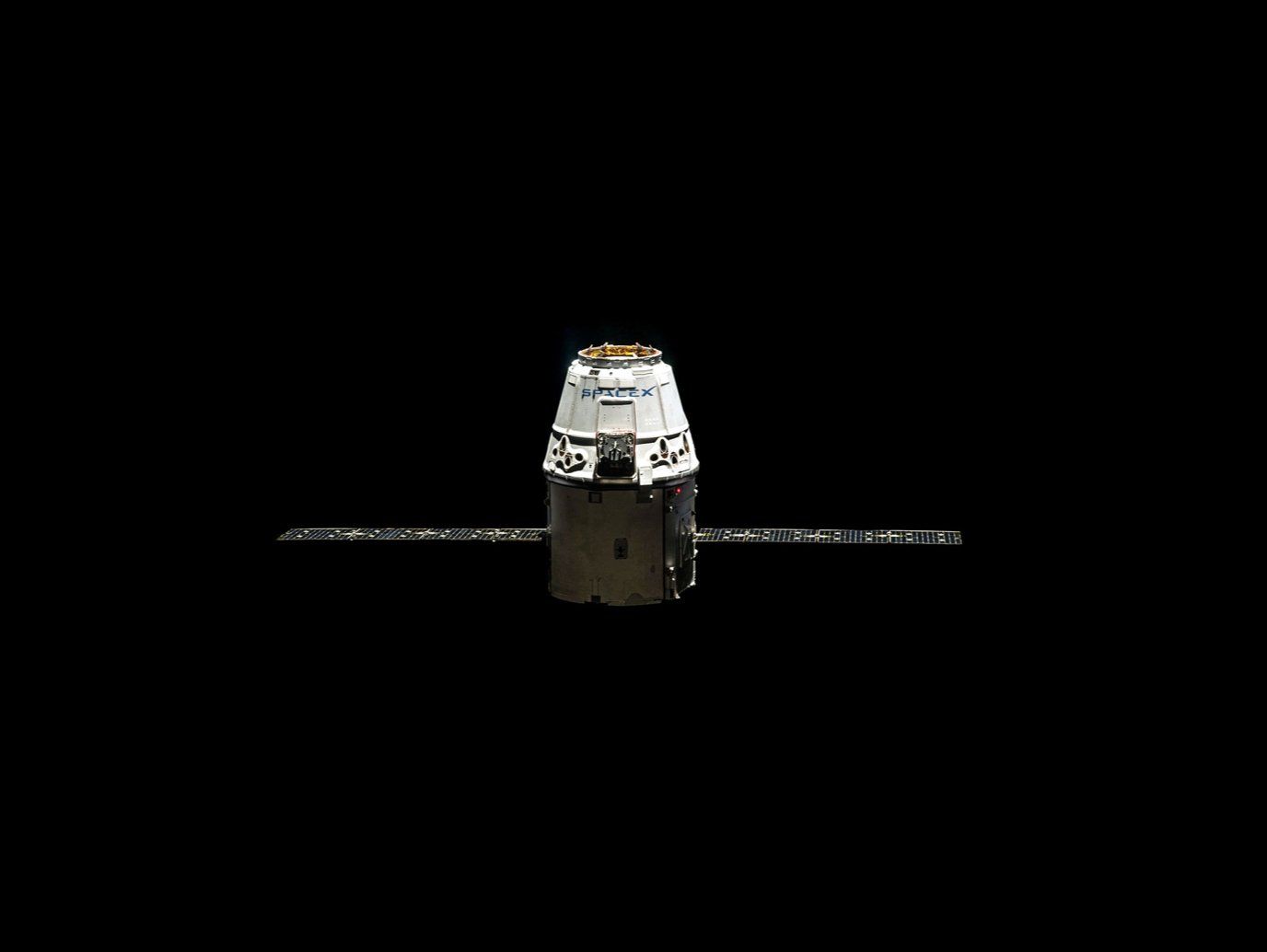
US leading the way in banning ASAT demonstrations (Image: SpaceX)
Space nations continue to form alliances
As discussed in our previous analysis, the landscape of the space sector is changing. New alliances are forming, and old ones being torn apart. New alliances, such as the Artemis Accords of China’s ILRS, are looking to take leadership and attract the attention of new and established space nations. The US continued its efforts this week to take leadership on ASAT testing this week, ploughing a way forwards with its attempts to ban the practice.
Germany and Japan have also signed-up to follow this commitment, following both Canada and New Zealand. The United States will now also look to introduce a resolution to the UN, calling for a halt on direct-ascent anti-satellite tests (ASAT), with Kamala Harris calling this a direct effort to draw more nations to join the moratorium. The efforts would also look to put pressure on nations that are planning ASAT testing, and gather a consensus among UN members. The US will also be holding a meeting of their Artemis Accords members at the International Astronautical Congress in Paris later this month, and could be another option in ensuring adopted norms in Earth orbit. However, UN-led approach may be more successful, considering that Russia and China are highly unlikely to sign-up to the Accords.
European launch capabilities have taken another step forwards, with Arianespace coming close to signing a deal with OneWeb to launch their remaining satellites. Similarly, German launch startup Rocket Factory Augsburg have signed a contract with the ESA for their Commercial Space Transportation Services and Support program, with the German Space Agency (DLR) also set as an anchor customer. Spanish startup Elche have also announced the launch of Europe's first reusable rocket later this year.
Europe has also taken steps towards its commitment to international cooperation, with the ESA’s Climate and Sustainability Officer Andrea Vena stating that they are looking forwards to cooperation with Türkiye. Vena also noted the importance of the commercial sector in creating competition, furthering research and investment, and also working with African nations and India. Cooperation between establish and new space nations will be vital, in order to encourage new talent, and forge strong relationships based on peaceful outcomes.
Similarly, China is continuing to build strong ties with African nations, as they look to assist in the development of their space industries. A contingent of Chinese taikonauts were recently touring through Africa, speaking to youths and answering their questions, no doubt inspiring the new generation of space enthusiasts. Head of the mission to the African Union said the space was part of China’s “Belt & Road Initiative”, assisting in developing infrastructure in developing nations. This could certainly be received by many as positive step for the space industry in Africa. Could China be ramping up their efforts to lure African nations away from western alliances such as the the ESA and the Artemis Accords? It appears that Kuwait will also be looking to work much closer with China in space, said Ahmed Al-Kandri, deputy and operations manager of Kuwait's national satellite project, in a recent interview.
China’s relationship with the west took another blow this week, with Imperial College London closing its joint Chinese-sponsored aerospace research centres, fearing it may advance China’s military ambitions. Whilst new alliance may be forming, the alliances themselves seem to be growing further apart.
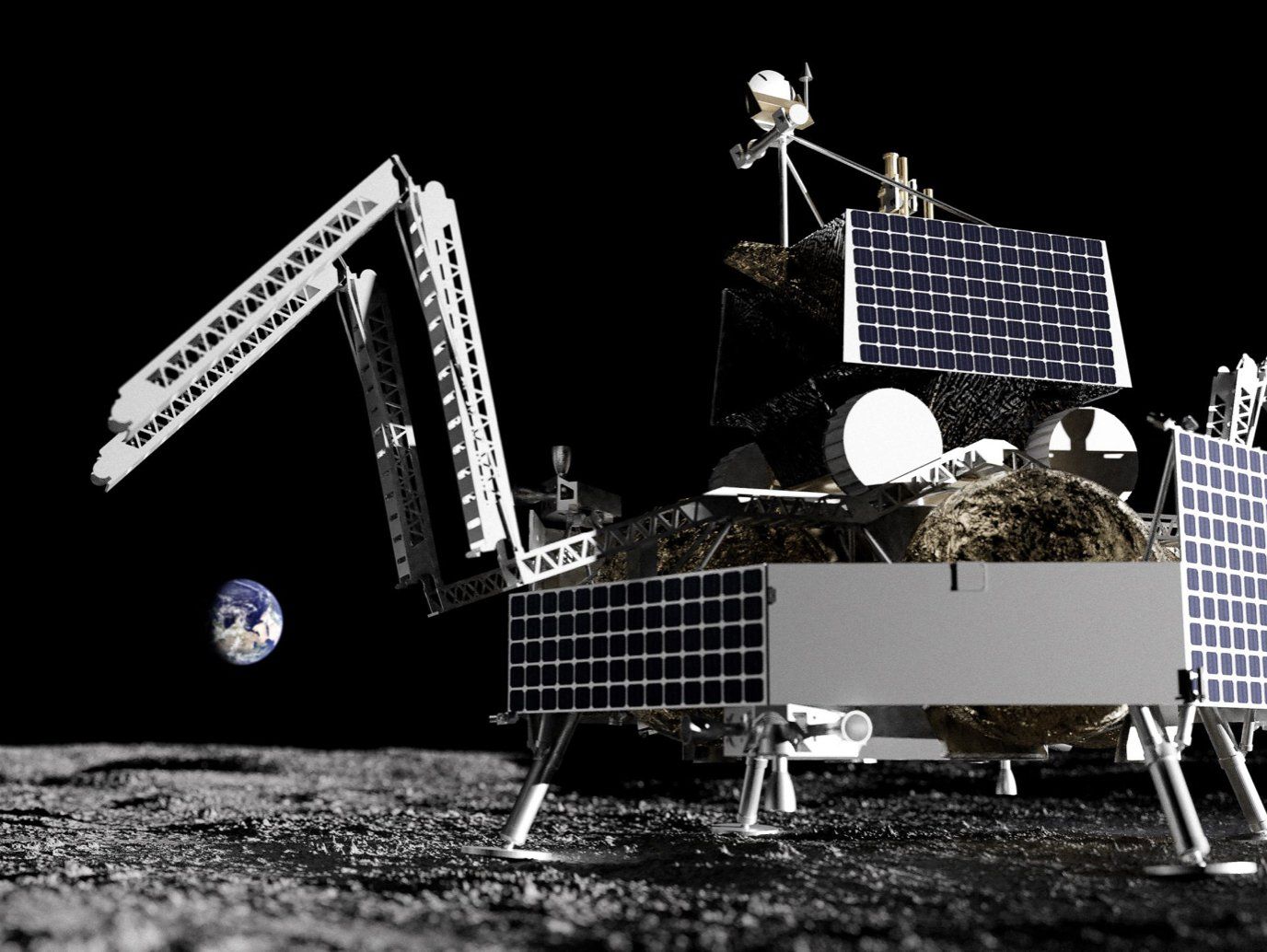
Astrobotic expand their portfolio with Masten purchase (Image: Astrobotic)
Commercial space race and growing factions
The commercial sector is also leveraging the success that is achieved through cooperation. Earlier this year, French satellite firm Eutelsat and British company OneWeb were an example how business can overcome geopolitical tensions, by putting Brexit differences aside and announcing a merger. The success of this partnership is showing already, as they have announced that they may consider a second generation constellation.
Astrobotic have also recently completed the purchase of Masten Space Systems, after the latter filed for bankruptcy earlier this year. The exact details of their plans are still unclear, but Astrobotic discussed the importance of Masten’s launch technology and that its suborbital work will continue. The consolidation of these technologies could mean that the combined organisation can offer a wider range of space services, rivalling comedies such as SpaceX and Blue origin.
Whilst such consolidation is good news for boosting capabilities (and especially good new for Masten), how will the formation of new mega-companies affect competition within the rest of the industry? Space News this week discussed this issue in regards to the consolidation of satellite companies, and wrote that “Future entrants would…likely struggle to offer the same capabilities as those that have joined forces.” Furthermore, how could the emergence of these corporations mean that the future of space is being driven into the hands of the few? There’s certainly two sides to the coin.
Perhaps there is another model of cooperation that could benefit more stakeholders. This week Microsoft announced plans to offer previews of its Azure Orbital Cloud Access, and highlighted its key to success being through partnerships; Airbus, Nokia and Thales Alenia to name a few. With their Azure network, Microsoft does not intend on launching their own satellites, but intends on working instead with partners to achieve its goals. Could this be a model for achieving both success and building a competitive space economy?
Similarly, agencies have launched a new Space Communications Alliance. Their aim is to connect private and public sector agencies through integrated public relations, content marketing and social media campaigns. The SCA will be launched at the 73rd International Astronautical Congress (IAC) in Paris from 18-22 September. This could also prove to be a way forwards, in order to connect businesses and promote cooperation, whilst not forcing them out of the market.
Another issue that such alliances could confront is that of geopolitics; not to be involved with it, but to provide an example of how businesses can overcome political differences, work together and build bridges. Politics will always shape international relations, and as it stands, relations are fast deteriorating between the major space powers. Maybe these alliances can show us another way forwards, for peace and success.
Share this article
External Links
This Week
*News articles posted here are not property of ANASDA GmbH and belong to their respected owners. Postings here are external links only.





















